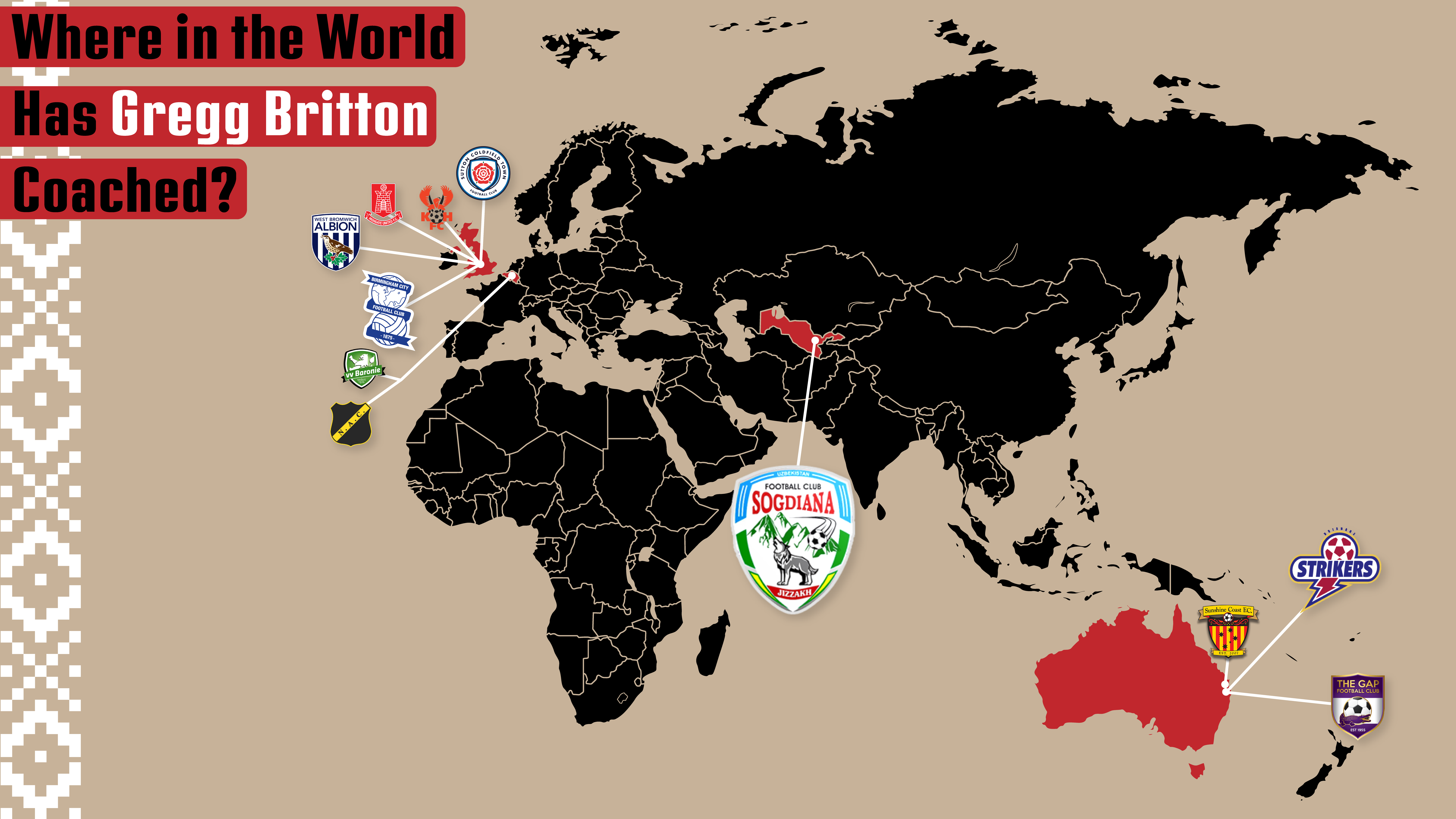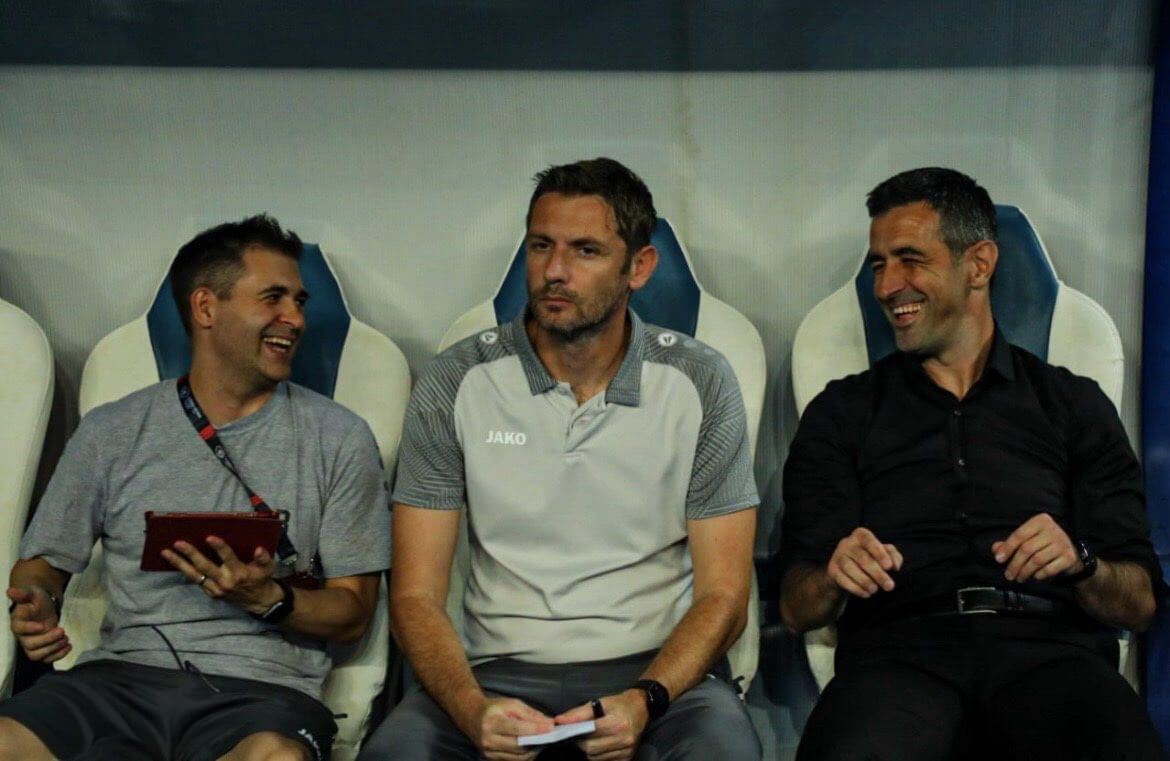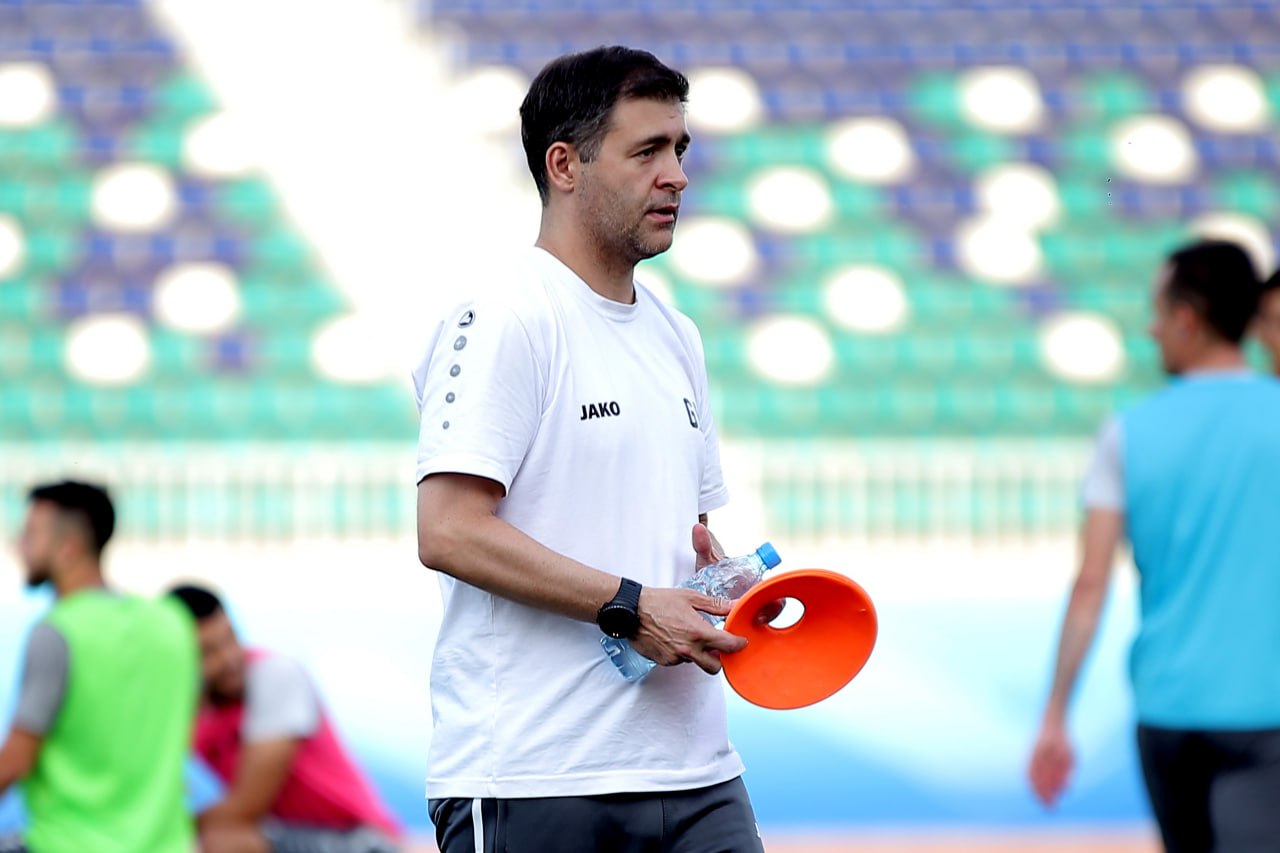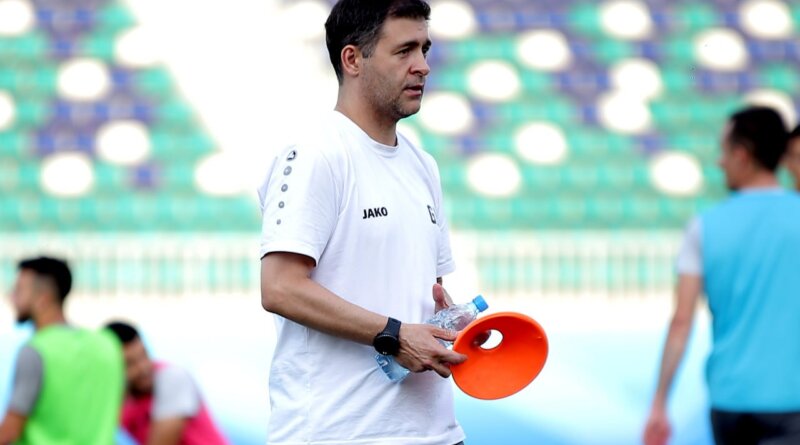From Kidderminster Harriers to Sogdiana Jizzakh: The first English coach in Uzbekistan’s Super League
Gregg Britton’s journey into Uzbek football brought memorable victories, police escorts from hostile fans, and culture shocks. His story uncovers a league shaped by Soviet-era toughness and hidden talent all 4,000 miles away from home in Central Asia.
In a world of football globalisation, English coaches have ventured far and wide, but very few have ventured into Central Asia. As the first Englishman to coach in Uzbekistan’s top professional football league, Britton’s journey to Sogdiana Jizzakh reveals a fascinating intersection of football cultures when taking the road less travelled.
“There’s not many people that get offered the opportunity, so I jumped at it,” reflects Britton, whose remarkable coaching journey spans two continents, from Birmingham to Tashkent.
Britton’s path to Uzbekistan began conventionally enough. After failing to make it as a player, he shifted to coaching in his late teens, earning his UEFA B license in England before broadening his horizons with stints in the Netherlands, Australia, and at Birmingham City and West Brom back home.

His career took an unexpected turn when former Leicester City manager Micky Adams contacted him about the opportunity of a technical director role for an academy in Uzbekistan.
What was intended as a brief three-month stint became the gateway to something much more significant. While there, Britton discovered that Uzbekistan was launching its AFC Pro Diploma course, the highest coaching qualification in Asia.
During the course, he made several key contacts, including Uzbekistan’s most capped player, Server Djeparov and Montenegrin coach Ivan Bošković, who later would become head coach at Sogdiana Jizzakh and offer Britton the assistant role.
When asked how his family and friends reacted to his Uzbekistan move, Britton laughs: “First is where’s that? Because to be honest, there’s not many people that know probably Central Asia or even where Uzbekistan is.” The initial concerns about laws, culture, food and health his family had were quickly dispelled after Britton showed them his arrangements and the opportunity.
It’s fair to say the football culture in Uzbekistan is different to that of England. For Britton, it posed a fascinating blend of post-Soviet influences and promising technical talent: “They’re very driven by old school mentality in a sense of speed, strength, physicality. However, there are a lot of very good technical players,” Britton explains. He points to the success of players like Abdukodir Khusanov at Manchester City and Eldor Shomuradov at Roma as evidence of the country’s potential in developing talent.
When asked to compare the Uzbek Super League to more familiar standards, Britton thoughtfully places the level between League One and championship level, though he acknowledges the dramatic range in quality throughout the league.
“It’s difficult, at the top end, you have Khusanov, who’s currently the centre back for Man city, a couple of players playing in the top division in Turkiye and in my opinion, a top player (Abbosbek Fayzullaev) at CSKA Moscow… At the bottom end of the table, they would probably reach the National League.”
The challenges of working in such a different environment were considerable, with the language barrier standing as the most formidable obstacle.
“Their language barrier is very limited in some sense, they speak Uzbek first and then Russian, and then if you’re very fortunate, they speak English.”
He added: “Football is a language in itself.” Explaining how on-field communication was manageable, but daily life proved more difficult. “Away from football, that’s where it’s the hardest, your downtime, ordering a taxi – I can’t do that.”
Culinary differences presented another adjustment. “The food is very different in a sense of they cook a lot of their food in oil, one of their main dishes is called plov, which is lovely. It would be healthy if you take out the oil,” he says with a smile.

At Sogdiana, working with a diverse backroom staff required creative communication solutions. “Ivan’s English was excellent,” Britton explains, but with other coaches and players, he relied on a combination of broken English, Russian phrases, and translators.
“We’d help each other, and we didn’t take anything for granted. We still went out and had a meal, had drinks, and it was still that nice friendly banter.”
One of Britton’s proudest moments involved working with a then 16-year-old Ollobergan Karimov, nicknamed “Guti,” who showed promise. “We recognised that Guti is one of the players we could realistically work with,” Britton recalls.
Later on that season, he went on to play in the U17 World Cup against England, a game they won 2-1. “I said to him through a translator, play well, but don’t win, funny enough he got man of the match so I text him saying I’m not happy with you,” Britton said with a smile.

Another memorable experience was an unprecedented 2-0 away victory over Bunyodkor, a win made sweeter by a beautiful team goal that came after “about 20 to 25 passes.”
He also recalls a hard-fought draw against a top team in front of 14,500 hostile fans that required a police escort from the stadium afterward.
Despite being the first English coach in the league, he’s not the first to represent England in the nation. As Uzbek football expert Conor Bowers points out, “Uzbekistan did have an English national team manager in Bob Houghton back in 2005.
“Overall, the geographical location, culture differences and the perception of the country has limited the appeal to those outside the region.”
Having returned to England, Britton now works as a senior analyst but yearns to return to coaching: “I want to get back on the field. I want that day-to-day football vibe.”
In a sport where paths to success have traditionally been narrowly defined, his willingness to step into the unknown, even when that unknown requires translators and flights via Istanbul, demonstrates how football’s frontiers continue to expand for those brave enough.




